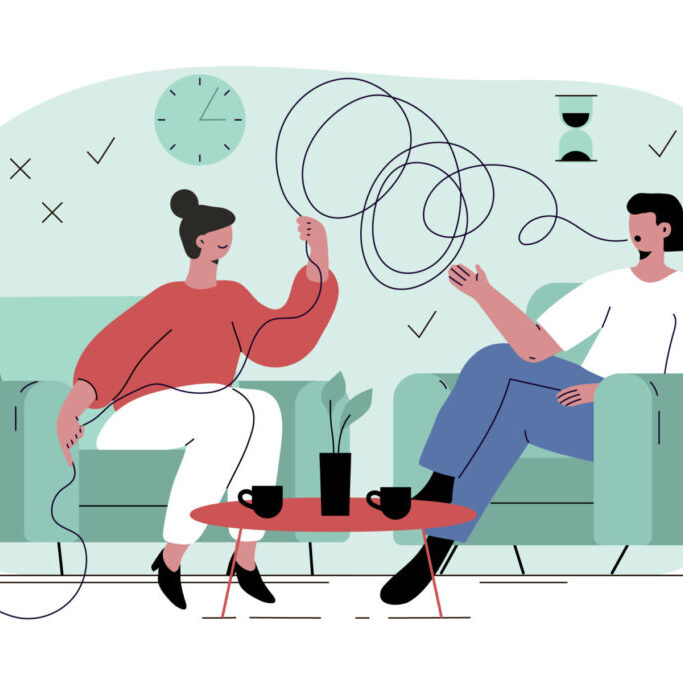The Importance of Non-Binary Care and Therapy

In a society that often views gender in rigid, binary terms, nonbinary people face unique challenges that can significantly affect their mental health and life satisfaction. The necessity for specialized therapeutic approaches sometimes referred to as nonbinary therapy, is crucial for addressing the specific mental health needs of nonbinary people.
The Complexity of the Nonbinary Experience
The mental health challenges faced by nonbinary individuals are more pronounced than those in the cisgender population. According to a report by the American Psychological Association, transgender and nonbinary individuals exhibit higher rates of mental health disorders, including anxiety, depression, and stress-related issues.
This data highlights the urgent need for mental health professionals to be equipped with the knowledge and skills to effectively support nonbinary individuals in their therapeutic journeys.
The distress often experienced by nonbinary individuals is not inherent to their gender identity but rather stems from societal attitudes and behaviors. Discrimination, lack of acceptance, stigma, and misunderstanding can lead to a host of mental health issues.
Nonbinary therapy focuses on mitigating these external pressures by validating the individual’s experiences and working towards a healthier self-perception. By understanding the societal impacts on their mental health, nonbinary clients can begin to separate external negativity from their self-worth, which is often a crucial step in therapy.
The Role of Nonbinary Therapy in Identity Exploration and Support
Nonbinary therapy is not just about addressing mental health issues; it’s about fostering an environment where people who are nonbinary can safely explore and affirm their identities. The therapeutic space is designed to protect against mental health threats by dissecting and challenging societal prejudices and misconceptions that people with nonbinary identities encounter daily.
One of the primary goals of nonbinary therapy is to help people rewrite the misguided narratives that society often imposes on them. This involves deconstructing the idea that nonbinary identity is flawed or pathological and reconstructing a personal narrative that reflects their true self, free from societal biases and internalized transphobia.
Furthermore, nonbinary therapy addresses the universal challenges of life—from managing relationships and stress to pursuing personal aspirations—ensuring that therapy covers all areas affecting an individual’s well-being, not just their gender identity.
The factors that put cis people at risk of poor mental health (i.e. relationship issues, family dynamics, heredity, trauma, etc.) don’t disappear for nonbinary people; nonbinary therapy helps to navigate and heal from these factors as well!
Effective Nonbinary Therapy
Choosing the right therapist is crucial for nonbinary individuals. It requires finding someone who not only understands but also respects and validates one’s nonbinary identity without needing education on basic gender identity issues and common experiences of trans and nonbinary people.
Therapists should ideally be active advocates for the LGBTQ+ community, as their outside engagement can enrich the therapeutic process.
Tailored Therapeutic Approaches
Several therapeutic approaches have proven effective for nonbinary people:
- Internal Family Systems Therapy (IFS) provides a model for understanding and integrating various internal parts, which may include different gender aspects, helping to create a cohesive and congruent self-image. It’s also effective at addressing trauma that is often associated with the trans experience.
- Narrative Therapy empowers individuals by allowing them to reshape their life stories in a way that emphasizes their strengths and autonomy, rather than viewing their gender identity as a source of conflict. It helps to rewrite the societal narratives of sickness.
- LGBT Affirmative Therapy explicitly acknowledges and addresses the unique challenges faced by queer and LGBTQ+ people, fostering an environment of acceptance and support.
- Mindfulness-Based Approaches help in reducing the anxiety and stress that often accompany societal discrimination, by focusing on present-moment awareness and acceptance.
- Person-Centered Therapy/Humanistic Approaches encourage self-exploration and self-acceptance, crucial for nonbinary individuals navigating their identity in an often unsupportive environment.
- Cognitive Behavioral Therapy (CBT) can be particularly beneficial for tackling negative thought patterns related to internalized stigma and societal rejection.
Choosing and Communicating with Your Therapist
When selecting a therapist, nonbinary individuals should consider asking about their familiarity with nonbinary issues, their approach to therapy, and how they handle topics related to gender and societal stigma. These questions may be enlightening:
- How do you approach gender diversity in your practice? This question helps gauge the therapist’s comfort and experience with clients of diverse gender identities, as well as their approach to handling issues specific to nonbinary individuals.
- Can you share your experience with transgender and nonbinary clients? Asking about their direct experience can provide insight into their familiarity and competence in dealing with issues pertinent to nonbinary individuals.
- What is your perspective on the impact of societal norms on nonbinary and transgender individuals? This question can reveal the therapist’s understanding of the broader social and cultural factors that affect nonbinary people.
- How do you ensure your practice is inclusive and affirming for nonbinary individuals? An inclusive practice is not just about being non-judgmental but actively affirming, advocating for, and supporting nonbinary identity.
- Do you have any training or continuing education that focuses on nonbinary, queer, and LGBTQ+ issues? Training and education indicate a therapist’s dedication to understanding the specific challenges faced by queer people, including nonbinary individuals.
- How do you handle situations where a client’s gender identity may evolve or change during therapy? This question tests the therapist’s flexibility and supportiveness in accommodating changes in a client’s self-identification or expression over time.
- Can you provide examples of strategies you might use to help someone with gender dysphoria or gender-related stress? Specific strategies and interventions show the therapist’s practical skills in addressing common issues faced by nonbinary clients.
- What is your approach to dealing with conflicts between a client’s gender identity and external pressures, such as family or workplace challenges? This question assesses the therapist’s ability to navigate complex personal and social dynamics that may impact a nonbinary person.
- How do you advocate for nonbinary and LGBTQ+ individuals outside of therapy sessions? A therapist’s advocacy efforts can enhance their understanding and effectiveness in therapeutic settings, indicating a deeper commitment to these communities.
Finding the right therapeutic fit is important! You deserve the best!
Nonbinary people face unique challenges that necessitate specialized therapeutic care. Nonbinary therapy offers a crucial support system tailored to address the specific needs of nonbinary peers by fostering an environment of understanding, acceptance, and growth.
At Tandem Psychology, we are committed to providing queer and LGBT affirming care, ensuring that every queer person knows they are not alone and that they have the support necessary to thrive despite societal challenges.
This blog is made for informational and educational purposes only. It is not medical advice. The information in this blog is not intended to (1) replace a one-on-one relationship with a qualified licensed health care provider, (2) create or establish a provider-patient relationship, or (3) create a duty for us to follow up with you.



